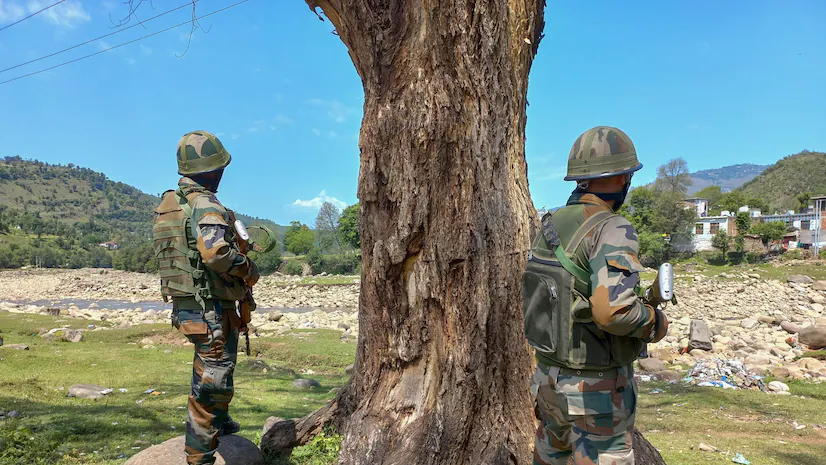The Armed Forces (Special Powers) Act (AFSPA), a legislation that grants special powers to the Indian Armed Forces in “disturbed areas,” has recently been extended in specific regions of Northeast India. This development highlights the continuing concerns regarding law and order in the areas affected. Let’s delve deeper into the nuances of this extension, its background, and the ongoing debate surrounding AFSPA’s application.
Background and Recent AFSPA Extension
- What is AFSPA?: Enacted in 1958, AFSPA empowers the armed forces with special rights in disturbed areas, including the authority to search, arrest without warrants, and open fire if necessary for public order maintenance.
- Recent Extension: The Union Home Ministry announced the extension of AFSPA in three districts of Arunachal Pradesh (Tirap, Changlang, and Longding) and certain areas in Namsai district, alongside eight districts and 21 police stations in five other districts of Nagaland.
- Duration and Areas Affected: This extension is for a six-month period starting from April 1, 2024, for Arunachal Pradesh, and from October 1, 2023, for Nagaland, subject to earlier withdrawal if the situation improves.
Implications of the AFSPA Extension
- Security and Order: The extension is aimed at ensuring the maintenance of public order and security in the regions marked by insurgency and security challenges.
- Public Reaction: While the government asserts that AFSPA is crucial for combatting insurgency and maintaining order, there are significant concerns and opposition from various quarters about its implications for human rights and civil liberties.
The Debate Around AFSPA
- Arguments for AFSPA: Proponents argue that AFSPA is essential for the armed forces to effectively combat insurgency and terrorism in disturbed regions.
- Arguments Against AFSPA: Critics, including human rights organizations, argue that the act leads to violations of human rights and gives undue powers to the armed forces.
Recent Developments
- Reduction in AFSPA Zones: Union Home Minister Amit Shah highlighted that AFSPA has been removed from 70% of areas in the northeastern states, indicating a move towards normalization in many regions.
- Future of AFSPA in Jammu and Kashmir: There is ongoing consideration to revoke AFSPA in Jammu and Kashmir, reflecting the central government’s approach to assess and respond to the changing security dynamics.
Also Read: India Semiconductor Mission 2022
भारतीय सशस्त्र बल (विशेष शक्तियाँ) अधिनियम (AFSPA), जो सशस्त्र बलों को विशेष अधिकार प्रदान करता है, को नॉर्थईस्ट इंडिया के निश्चित क्षेत्रों में फिर से विस्तारित किया गया है। इस विस्तार के तहत, अरुणाचल प्रदेश के तीन जिले (तिराप, चांगलांग, और लोंगडिंग) और नागालैंड के आठ जिले और पांच अन्य जिलों के 21 पुलिस स्टेशनों को अगले छह महीनों के लिए ‘अशांत क्षेत्र’ के रूप में घोषित किया गया है।
AFSPA के तहत, सशस्त्र बलों को बिना वारंट के खोज और गिरफ्तारी करने और जरूरी समझे जाने पर गोलीबारी करने की अनुमति होती है। यह कानून सुरक्षा बलों को अशांत क्षेत्रों में संचालन को सुविधाजनक बनाने के लिए लागू किया जाता है।
केंद्रीय गृह मंत्रालय के अनुसार, यह विस्तार उस समीक्षा के बाद किया गया है जिसमें अरुणाचल प्रदेश और नागालैंड में कानून और व्यवस्था की स्थिति का आकलन किया गया था।
Frequently Asked Questions (FAQs)
- What is the purpose of declaring an area as “disturbed” under AFSPA?
- To facilitate armed forces’ operations in maintaining public order and security in regions facing insurgency and security threats.
- How often is the status of ‘disturbed areas’ reviewed?
- The status and extension of AFSPA in disturbed areas are reviewed periodically, typically every six months, based on the prevailing law and order situation.
- Can AFSPA be revoked or withdrawn?
- Yes, AFSPA can be revoked or withdrawn from areas where the government deems the security situation has improved sufficiently.
Multiple Choice Questions (MCQs)
- Which Act gives special powers to the armed forces in disturbed areas in India?
- A) IPC
- B) CRPC
- C) AFSPA
- D) UAPA
- Answer: C) AFSPA
- How many districts in Arunachal Pradesh have been declared as ‘disturbed areas’ under the recent AFSPA extension?
- A) 2
- B) 3
- C) 4
- D) 5
- Answer: B) 3
- What is the primary reason for AFSPA Extension in certain regions?
- A) Economic development
- B) Educational initiatives
- C) Maintenance of public order
- D) Tourism promotion
- Answer: C) Maintenance of public order
